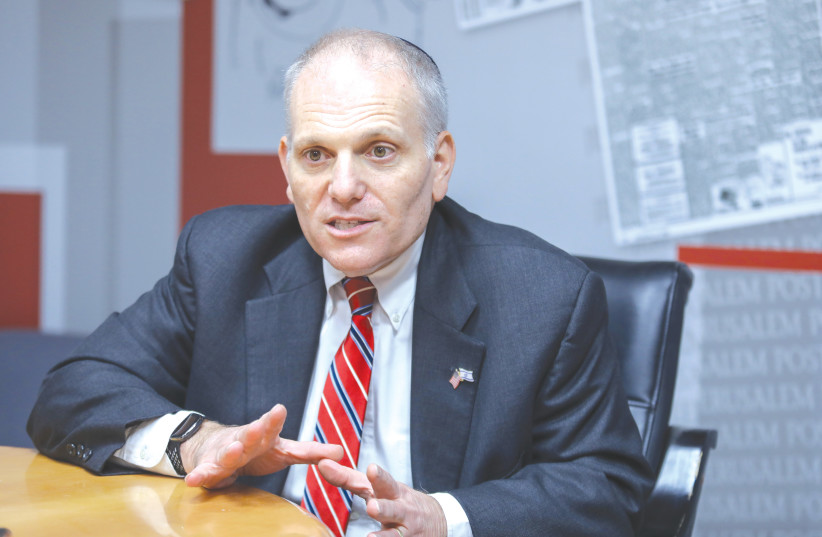On Thursday, The Jerusalem Post’s Jewish World analyst Zvika Klein learned that the Conference of Presidents of Major Jewish Organizations, which is holding its annual conference here in a week, has so far only invited ministers from the Likud Party to address its members.
Representatives from the other coalition members – Religious Zionist Party, Otzma Yehudit, Shas and United Torah Judaism – have not been invited.
Those who were invited to speak include President Isaac Herzog, Prime Minister Benjamin Netanyahu, Foreign Minister Eli Cohen and Diaspora Affairs Minister Amichai Chikli.
The Conference of Presidents, an umbrella body for the largest American Jewish organizations, includes among its ranks “over 50 organizations from a broad political and social spectrum of the American Jewish community,” according to the organization.
CEO William Daroff told the Post on Thursday that principal was not behind the decision, but rather it was decided to only invite coalition members relevant to the conference’s work.

“We’ve invited many members of the Knesset to an annual lunch with the Knesset at the Chagall Hall,” Daroff said. “We’re also going to be meeting with two committees: the Diaspora, Aliyah and Integration Committee as well as the Foreign Affairs and Defense Committee. During these meetings, there will be a good representation of the mosaic that makes up the Knesset.”
Some weren't invited to speak
Nevertheless, some of the biggest names in today’s coalition, including Finance Minister Bezalel Smotrich and National Security Minister Itamar Ben-Gvir, told Klein that they were not invited to speak to the group or even to meet with them.
And while this is likely the result of displeasure among American Jews with the makeup of the government, we believe that this decision is wrong.
When it comes to the new coalition, the main concerns among Jewish organizations outside of Israel relate to matters ranging from the declared desire to modify the Law of Return, which the coalition members have discussed limiting by means of scrapping the Grandchild Clause, the continued standoff at the Western Wall and, yes, the proposed judicial reforms.
Not meeting with certain ministers is something that governments often do. Israel has done this in the past with, for example, ministers from Austria who hailed from far-right parties – and the US has done this with ministers like Naftali Bennett, who the commerce secretary in the Obama administration refused to meet when he was serving as Israel’s economy minister.
That is why it came as no surprise that US Secretary of State Antony Blinken, upon his visit this past week to Israel, did not meet with any other member of the coalition except the prime minister, Foreign Minister Eli Cohen and Strategic Affairs Minister Ron Dermer.
Israel considerations should be different for Diaspora Jewry
But when it comes to Diaspora Jewry, the considerations should be different.
Whether the Jewish organizations and their individual leaders like it or not, the Israeli people have spoken – and they have voted in this government.
These are the political leaders who the Diaspora will have to interact with in order to maintain a relationship with Israel and to whom they will need to voice their concerns and interests.
Boycotting politicians is not the right way to move forward. The goal of Jewish organizations right now should be to open a direct line of communication including with members of the government with whom they disagree so they can come together and learn from one another. This is the best way to ensure that the new ministers in the government – those from parties that might seem opposed to the Diaspora’s interests – actually hear what Jewish NGOs have to say and understand Diaspora Jewry concerns.
These Jewish groups might even be surprised – some of these ministers are actually interested in listening and learning about topics they are not intimately familiar with.
Not engaging sets a bad precedent, just a month after the coalition’s formation. Jewish groups should do better for themselves, for the people they represent and for the Israel-Diaspora relationship they claim to safeguard.
